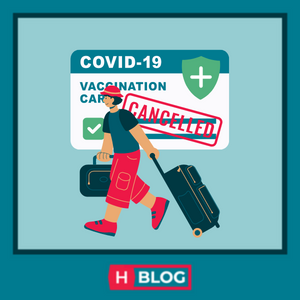
Getting vaccinated in Hungary against the coronavirus
If you have a Hungarian social security number and a Hungarian GP, you can simply register online for getting vaccinated. There are various vaccines available, and while all are officially trusted and efficient, you should consult your GP to see which one is best for you.
If you have a Hungarian social security number and a Hungarian GP, you can simply register online for getting vaccinated. There are various vaccines available, and while all are officially trusted and efficient, you should consult your GP to see which one is best for you.
Last updated on 26 March 2021.
Where to get vaccinated?
For now, you can get the vaccine only through social security in Hungary. Vaccines are currently not available at private medical centers, and even though some offer a “pre-registration” for a fee, they cannot give you any tangible information.
Register online here with your social security number (TAJ number), and provide your contact data so you can be reached when the vaccine becomes available for you. You will either get vaccinated by your GP or at one of the vaccination centers closest to where you live.
IMPORTANT! In the past weeks, several people have posted and shared the (mis)information that even if you have no TAJ number, you can register for the vaccine in Hungary with a generic number 900 000 007. PLEASE DO NOT DO THIS. Click here to learn why.
You can always contact your GP to get advice about your health – the coronavirus vaccination is no different. Call their office and ask about your options. Before a visit, ask for an appointment. Be patient and if you can’t reach them, keep trying. They are very busy with the vaccination campaign and with covid but once you reach them, they should be helpful.
Why do you need a GP? Learn more here.
Which vaccines are available in Hungary?
While for now you cannot really choose your vaccine as in a shop, you can say no to the vaccine offered if you do not trust it. This is why you should learn more about the various vaccines, and discuss your options with your GP who knows most about both the vaccines and your health.
At this point, the following vaccines are available:
| Vaccine | Approved | Origin |
| Pfizer/BioNTech | by EU | Germany/USA |
| Moderna | by EU | USA |
| AstraZeneca/Oxford | by EU | UK |
| Sputnik V | by HU | Russia |
| Sinopharm BBIBP-CorV | by HU | China |
Even if government communication about these vaccines is somewhat hectic, all of them should be safe and efficient. The ways they work are different (mRNA, adenovirus, dead coronavirus), and all of them might have some mild and expected side-effects. These side-effects may be wide-ranging, from a slight pain around the place the shot was administered to fever for a few days. While all of these might be normal (since the vaccine SHOULD trigger a response from your immune system), you should discuss with your GP which vaccine might be the safest for you. Keep an open mind and rely on medical advice, not on the media. It is important to get vaccinated as soon as possible but also to feel informed and safe.
Each vaccine is administered in 2 doses, 4-12 weeks apart
The common feature of each currently used vaccine is that you should receive 2 shots. The time between the 2 doses varies, not only from vaccine to vaccine, but also as time goes by and new research gets published. While a 4-week interval is typical for most vaccines, the time between getting vaccinated by the 2 doses of Astrazeneca has just been increased to 12 weeks for maximum efficiency.
You are considered protected after the second dose
Whichever method each vaccine uses, the point of vaccination is to prepare your immune system for a “real” encounter with the virus. The entire immunization process takes about 2 weeks after you receive the second dose of the vaccine. Because of this, you can still contract the coronavirus and become ill even if you are vaccinated – if you have received only the first dose or have just received the second dose. And this is why the suggested time between doses becomes relevant if you are exposed to potentially infected people.
Immunity develops gradually, so you will have more protection day by day.
Learn more and consult your GP
You can already learn a lot on your own, but your GP can help you decide which vaccine is safest for you. Ask about your options. Getting vaccinated as soon as possible is in the best interest of all of us.
Vaccine information / registration: vakcinainfo.gov.hu
Checking if your registration has been successful: https://vakcinareg.neak.gov.hu/regisztracio/
Email address for questions about the pandemic: koronavirus@1818.hu
Email address for handling your data related to your registration for the vaccine: adatvedelem@mk.gov.hu
(If you need information in English, there is a bigger chance for getting an answer in email than if you called the hotline.)
You can also read our short summary on how to register with a GP here.
Contact
Contact us today
Monday - Friday
9am - 5pm CET
Helpers Hungary Kft
Budapart Gate
Dombóvári út 27
Budapest 1117, Hungary
If you’re visiting us, please use entrance A and come to the 2nd floor.






